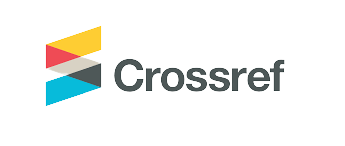Analysis of Challenges and Opportunities of Online Learning for Islamic Religious Education Teachers
Keywords:
Online learning, Islamic Religious Education, challenges, opportunities, digital pedagogy, blended learningAbstract
The rapid growth of online learning in recent years has significantly influenced the teaching of Islamic Religious Education (IRE). This study analyzes the challenges and opportunities faced by Islamic Religious Education teachers in implementing online learning. The challenges include limited technological literacy among teachers and students, inadequate internet connectivity, lack of interactive media tailored to Islamic education, and difficulties in assessing students’ spiritual attitudes. Conversely, online learning provides opportunities for innovation in teaching methods, the development of digital-based Islamic learning resources, and the flexibility to integrate global Islamic knowledge through virtual platforms. This research highlights that addressing these challenges requires comprehensive training for teachers, improvement of digital infrastructure, and the development of pedagogically appropriate e-learning materials. Furthermore, the adoption of blended learning models is suggested to optimize both technology and the humanistic values of Islamic education. The findings of this study contribute to formulating effective strategies for enhancing the quality of Islamic Religious Education in the digital era.
References
Achmat, M. (2018). Entrepreneurship Education in Increasing the Independence of Students of Al-Hidayah II Islamic Boarding School, Suorejo, Pasuruan. Al-Murabbi Jurnal Pendidikan Agama Islam, 1, 1–22. Retrieved from https://jurnal.yudharta.ac.id/v2/index.php/pai/article/view/1285
Afifatun, S. (2025). The Role of Islamic Education in Building Ecological Awareness Among Youth. Journal of Islamic Studies and Educational Innovation, 1(2), 187–197.
Aziz, A., & Zakir, S. (2022). Tantangan Ilmu Pendidikan Agama Islam di Era 4.0. IRJE: Jurnal Ilmu Pendidikan, 2(3), 1070–1077. Retrieved from https://journal.universitaspahlawan.ac.id/index.php/jpdk/article/view/9498/7322
Bahrissalim, B., & Fauzan, F. (2018). Evaluasi Kurikulum Pelatihan Dalam Meningkatkan Kompetensi Pedagogik Guru Pai Di Balai Diklat Keagamaan Jakarta. Edukasia : Jurnal Penelitian Pendidikan Islam, 13(1), 25. https://doi.org/10.21043/edukasia.v13i1.2779
Budiman, H. (2017). Peran Teknologi Informasi Dan Komunikasi Dalam Pendidikan. Al-Tadzkiyyah: Jurnal Pendidikan Islam, 8(1), 31. https://doi.org/10.24042/atjpi.v8i1.2095
Creswell, J. W. (2018). Research Design: Qualitative, Quantitative, and Mixed Methods Approaches. Thousand Oaks: CA: SAGE Publications.
Faqihuddin, A., & Sinta, D. (2024). Peningkatan Kompetensi Digital Di Perguruan Tinggi: Pengaruh Mata Kuliah Desain Digital Pendidikan Agama Islam Terhadap Pengembangan Keterampilan Digital Mahasiswa. Wawasan: Jurnal Kediklatan Balai Diklat Keagamaan Jakarta, 5(1), 85–101. https://doi.org/10.53800/wawasan.v5i1.279
Herdiyanti, Y., Janah, M., & Susanto, R. (2025). Building a Golden Generation : Synergy of Education , Technology , and Qur ’ anic Values. JISEI: Journal of Islamic Studies and Educational Innovation, 01(01), 36–48.
Huberman, A. M., & Jhonny, S. (2014). Qualitative Data Analysis a Methods Sourcebook. America: Arizona State University.
Martin, F., Sun, T., & Westine, C. D. (2020). A systematic review of research on online teaching and learning from 2009 to 2018. ELSEVIER : Computers & Education Journal, (January).
Miles, M. B., & Huberman, A, M. (1994). Qualitative Data Analysis (Vol. 148, pp. 148–162). Vol. 148, pp. 148–162. London, New Delhi: SAGE Publications International Education and Profesional Publisher.
Muhammad Nur Effendi, Suriagiri, & Mudhiah. (2025). Development of Islamic Akidah Education in Facing the Era of Society 5.0. Tafkir: Interdisciplinary Journal of Islamic Education, 6(1), 77–93. https://doi.org/10.31538/tijie.v6i1.1242
Paduli, G. (2025). Sustainable Well-Being & Clinical Resilience: Psikologi Positif untuk Krisis Mental. PT. Star Digital Publishing, Yogyakarta-Indonesia.
Qomariyah, N., & Maghfiroh, M. (2022). Transisi Kurikulum 2013 Menjadi Kurikulum Merdeka: Peran dan Tantangan dalam Lembaga Pendidikan. Gunung Djati Conference Series, 10, 105–115.
Qomarudin, F., & Zuhri, A. S. (2025). Innovation of Story-Based Moral Learning Modules in Strengthening Student Character. JISEI: Journal of Islamic Studies and Educational Innovation, 01(01).
Sahroni, Furqoni, H., & Martoyo. (2025). Comprehensive Review of the Book Ta ’ lim al-Muta ’ alim in the Context of Developing Teaching Materials for Creed and Morals in Madrasah Aliyah. JISEI: Journal of Islamic Studies and Educational Innovation, 01(01), 93–100.
Satriani, E., & Putra, A. (2021). The Impact of Fiqih Ibadah Materials on Amaliyah of Vocational High School Students. Journal of Islamic Education Students (JIES), 1(2), 75. https://doi.org/10.31958/jies.v1i2.3431
Setiadji, B. (2020). Konsep Pendekatan Behaviorisme B. F. Skinner Dan Relevansinya Terhadap Tujuan Pendidikan Islam. Institut Agama Islam Negeri Ponorogo, (April).
Simamora, I. Y., & Farid, A. S. (2024). Rethinking the use of Social Media in Islamic Broadcasting Practices: A Theological Perspective. Pharos Journal of Theology, 105(105(5)), 1–15. https://doi.org/10.46222/pharosjot.105.516
Siswanto, E., & Soeharno, A. (2024). Recent Learning Innovations: Increasing The Use Of Blogs As Learning Media For Educators. Journal Of Humanities Community Empowerment, 2(1), 30–36.
Sugiyono. (2015). Metode Penelitian Pendidikan (Pendekatan Kuantitatif, Kualitatif, Dan R&D). Bandung: Alfabeta.
Supriyanti, Kurniawati, D., & Susanto, R. (2025). Analysis of the Minister of Education ’ s Curriculum Policy in the 2019-2024 Vs . 2024-2029 Era. QALAMUNA: Jurnal Pendidikan, Sosial, Dan Agama, 17(1), 741–754. https://doi.org/10.37680/qalamuna.v17i1.7127
Susanto, R., Ali, M. M., & Hidayat, M. D. (2024). Islamic Religious Education in the Independent Learning Curriculum. IKTIFAK : Journal of Child and Gender Studies, 02(02), 63–72. https://doi.org/https://doi.org/10.55380/iktifak.v2i2.962
Susanto, R., Widodo, W., & Kolis, N. (2023). The Implication of the Sima’an Ahad Pahing on the Qur’an Memorization at PPTQ Al-Hasan Ponorogo. Al-Adabiya: Jurnal Kebudayaan Dan Keagamaan, 18(2), 125–132. https://doi.org/10.37680/adabiya.v18i2.2396
Wahyu, W., Susanto, R., & Deden, H. (2023). The Meaning Of Trust In Surat Al- Ahzab Verse 72 The Perspective Of Sheikh Ustman Al-Khubawi. Proceeding of the 3rd FUAD’s International Conference on Strengthening Islamic St, 03(01). Retrieved from https://garuda.kemdikbud.go.id/journal/view/26897#!
Yahuda, R. D., Susanto, R., Widodo, W., Kolis, N., & Abdillah, B. (2023). Musafahah Method Transformation on Learning Qiraah Sab’ah in PPTQ Al-Hasan Ponorogo. Masdar Jurnal Studi Al-Qur’an & Hadis, 5(2). https://doi.org/https://doi.org/10.15548/mashdar.v5i2.7293
Downloads
Published
How to Cite
Issue
Section
License
Copyright (c) 2025 Journal of Islamic Studies and Educational Innovation

This work is licensed under a Creative Commons Attribution-ShareAlike 4.0 International License.







